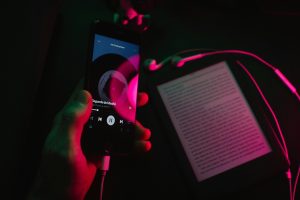In a time when artificial intelligence is transforming the creative arts, a band called The Velvet Sundown has ignited one of the music industry’s most curious debates: are they a real band—or an AI-generated illusion?
With a sound described as a lush blend of 1970s-style psychedelic rock and ambient experimentation, The Velvet Sundown has captured the ears of thousands. As of this week, the group has amassed over 634,000 monthly listeners on Spotify. Tracks like “Dust on the Wind,” “Drift Beyond the Flame,” and “End the Pain” have gained popularity through organic playlist sharing, leading to speculation about their origins.
The controversy lies not in the quality of their music, but in the mystery surrounding the band itself. Despite having a Verified Artist badge on Spotify and a band bio listing members Gabe Farrow, Lennie West, Milo Raines, and Orion “Rio” Del Mar, no public record or digital footprint can confirm the existence of any of these individuals. Efforts by journalists and fans to locate interviews, performance footage, or any traditional signs of human musicianship have come up empty
Adding fuel to the fire are the band’s AI-like visuals—album covers featuring surreal desert landscapes, disembodied eyes, and floating architecture—paired with vocals and lyrics that some describe as oddly uniform or lacking emotional nuance.
While their Instagram page shares stylized images of the group, many appear AI-generated. There are no live performance videos, concert dates, or behind-the-scenes content typically expected from an active band. The lack of transparency has led many to conclude that the band may be the product of advanced AI trained on decades of rock music history, capable of mimicking human composition and production techniques.
The group—or someone claiming to represent it—pushed back on June 30 via X (formerly Twitter), writing: “This is our music, written in long, sweaty nights in a cramped bungalow in California with real instruments, real minds, and real soul.” The post accused journalists of “lazy, baseless” assumptions, asserting that the band is entirely human made.
Interestingly, several journalists responded to the post, offering to schedule interviews. The account has replied affirmatively to those requests, but so far, no interviews have been completed or published.
This debate comes amid a larger cultural reckoning about AI’s growing influence in music. Spotify’s 2024 monetization policy changes—cutting revenue for songs with fewer than 1,000 annual streams—have disproportionately hurt smaller, independent artists. Some musicians fear that if AI-created bands like The Velvet Sundown are embraced by streaming platforms, they could push human artists further to the margins.
Most recently an AI-generated commercial made it to television. The first fully AI-generated TV commercial has hit the airwaves. Created by director Sam Accetturo using Google’s Veo 3, the ad aired during Game 3 of the NBA Finals and features surreal scenes promoting the Kalshi betting platform. Accetturo wrote the script with input from Kalshi and used Gemini and ChatGPT to develop characters and dialogue. The 15-clip ad was created in just three days for $2,000 and is expected to reach 20 million impressions across platforms.



